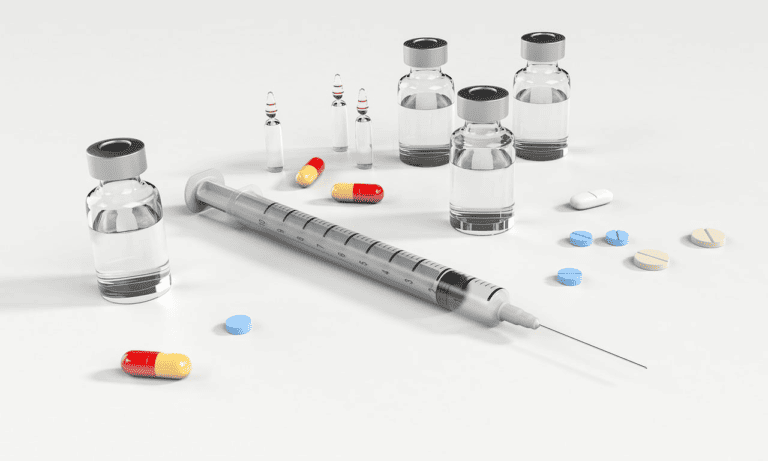Eating Disorders
Eating disorders are complex mental health conditions characterized by persistent disturbances in eating behaviors and a preoccupation with body weight and shape. Anorexia nervosa, bulimia nervosa, and binge-eating disorder are the most widely recognized types of eating disorders.
These conditions can have severe physical and psychological consequences, including malnutrition, electrolyte imbalances, and emotional distress. Contributing factors may include genetic, psychological, and sociocultural influences.
Seeking professional help is crucial for diagnosis and effective treatment. Various therapeutic approaches, such as cognitive-behavioral therapy and nutritional counseling, are commonly utilized. Support from healthcare professionals, family, and support groups can play a crucial role in recovery.
Understanding the signs, symptoms, and impact of eating disorders is essential in providing effective support and intervention.
Key Takeaways
- Eating disorders are influenced by genetic, psychological, and sociocultural factors.
- Treatment approaches for eating disorders include cognitive-behavioral therapy, nutritional counseling, medical monitoring, medication management, and support from healthcare professionals, family, and support groups.
- Anorexia nervosa is influenced by media influence, family dynamics, and perfectionism, and interventions should focus on prevention, support, and education.
- Bulimia nervosa is influenced by risk factors, societal pressure, psychological factors, and environmental triggers, and interventions should address genetic, psychological, and sociocultural factors.
Understanding Anorexia Nervosa
In recent years, there has been an increasing focus on understanding the complexities of anorexia nervosa. This psychiatric disorder is multifaceted and influenced by various factors, including media influence, body image, family dynamics, and perfectionism.
Media influence and societal pressures to attain a specific body image have been linked to the development of anorexia nervosa. The portrayal of ultra-thin models and celebrities as the epitome of beauty can lead individuals, especially young women, to develop unrealistic standards for their own bodies. This constant exposure to unrealistic body ideals can significantly impact an individual’s self-perception and contribute to the development of disordered eating patterns.
Moreover, family dynamics play a crucial role in the onset and perpetuation of anorexia nervosa. High levels of family conflict, overprotection, and enmeshment have been associated with the development of this eating disorder. Additionally, perfectionism within the family environment can contribute to the individual’s need for control and the relentless pursuit of thinness.
Understanding these various influences is essential for developing effective prevention and intervention strategies for anorexia nervosa. By addressing the impact of media, promoting positive body image, and fostering healthy family dynamics, it is possible to mitigate the risk factors associated with this debilitating disorder.
Furthermore, providing support and education to individuals struggling with perfectionism can help prevent the development of anorexia nervosa and facilitate recovery for those already affected.
Exploring Bulimia Nervosa
Exploring the psychological underpinnings of bulimia nervosa reveals the intricate interplay of internal and external factors contributing to the development and maintenance of this eating disorder. Bulimia nervosa is a complex mental health condition characterized by recurrent episodes of binge eating, followed by compensatory behaviors such as self-induced vomiting, misuse of laxatives, or excessive exercise. Understanding the factors that contribute to the onset of bulimia nervosa is crucial for effective prevention and treatment strategies.
Factors influencing bulimia nervosa development:
-
Risk factors and genetic predisposition: Research suggests that genetic factors may predispose individuals to developing bulimia nervosa. Individuals with a family history of eating disorders or other mental health conditions may have a higher risk of developing bulimia nervosa. Additionally, certain personality traits, such as impulsivity and perfectionism, have been associated with an increased vulnerability to this eating disorder.
-
Societal pressure and body image: Sociocultural factors, including societal pressure to attain a certain body shape or size, play a significant role in the development of bulimia nervosa. Media portrayal of unrealistic beauty standards and societal emphasis on thinness can contribute to body dissatisfaction and low self-esteem, which are known triggers for disordered eating behaviors.
-
Psychological factors and environmental triggers: Traumatic life events, such as childhood abuse or bullying, as well as psychological conditions like anxiety, depression, and low self-esteem, can contribute to the development of bulimia nervosa. Environmental triggers, such as stress or major life changes, may also exacerbate disordered eating patterns.
Understanding these multifaceted influences on bulimia nervosa can guide interventions aimed at addressing the complex interplay of genetic, psychological, and sociocultural factors in the development and maintenance of this eating disorder.
Binge-Eating Disorder: Signs and Symptoms
The presentation of binge-eating disorder often involves uncontrollable episodes of consuming large amounts of food within a discrete period. Individuals with this disorder often experience feelings of distress, guilt, and a lack of control during these episodes. Emotional triggers, such as stress, anxiety, or depression, can often precede binge-eating episodes. It is common for those with binge-eating disorder to eat when they are not physically hungry but are seeking comfort or relief from negative emotions.
Behavioral patterns associated with binge-eating disorder include consuming large quantities of food rapidly, even when not feeling physically hungry, eating alone due to embarrassment over the quantity of food being consumed, and feeling disgusted, depressed, or guilty after overeating. These behavioral patterns can lead to the development of obesity, as individuals with binge-eating disorder often struggle with weight management and may have a higher body mass index compared to individuals without an eating disorder.
Furthermore, individuals with binge-eating disorder may have difficulties regulating their emotions and may use food as a way to cope with their feelings. This disorder can significantly impact an individual’s quality of life, leading to social isolation, low self-esteem, and a compromised ability to engage in daily activities.
Understanding the signs and symptoms of binge-eating disorder is crucial for early identification and intervention to provide timely support and treatment for those affected.
Impact on Physical Health
Eating disorders can have significant impacts on physical health, leading to nutrient deficiencies and associated risks.
Additionally, these disorders can cause severe damage to various organs and result in a range of complications.
Understanding these physical health implications is crucial for addressing and treating eating disorders effectively.
Nutrient Deficiencies and Risks
Nutrient deficiencies in individuals with eating disorders pose significant risks to their physical health.
-
Diet quality: Eating disorders often lead to restrictive eating patterns, resulting in a lack of essential nutrients such as vitamins, minerals, and macronutrients. This poor diet quality can lead to a range of health issues, including weakened immune function, anemia, and electrolyte imbalances.
-
Nutrient intake: Individuals with eating disorders may not consume enough calories to meet their body’s energy needs, resulting in inadequate intake of vital nutrients. This can lead to malnutrition, which can have serious consequences for physical health, including muscle wasting, organ damage, and weakened bones.
-
Overall physical health: The combination of poor diet quality and inadequate nutrient intake can result in a weakened immune system, poor wound healing, and increased risk of infections and illnesses.
Organ Damage and Complications
Adequate nourishment is crucial for the proper functioning of vital organs, and the chronic lack of essential nutrients in individuals with eating disorders can lead to severe organ damage and a range of complications impacting their physical health. Organ damage may include heart problems such as an irregular heartbeat or even heart failure due to electrolyte imbalances and a decrease in heart muscle mass. Long-term complications also encompass gastrointestinal issues like constipation, bloating, and delayed emptying of the stomach. Furthermore, the lack of adequate nutrition can lead to weakened bones, increasing the risk of fractures and osteoporosis. The table below outlines some of the potential organ damage and long-term complications associated with eating disorders.
| Organ Damage | Long-term Complications |
|---|---|
| Heart problems | Gastrointestinal issues |
| Electrolyte imbalances | Weakened bones |
| Decrease in heart muscle mass | Increased risk of fractures and osteoporosis |
Psychological Effects of Eating Disorders
The psychological effects of eating disorders can be profound, impacting various aspects of an individual’s mental well-being. These effects include a significant decline in self-esteem, heightened emotional distress and anxiety, as well as cognitive impairment and disordered thinking patterns.
Understanding these psychological impacts is crucial in developing comprehensive approaches to support individuals with eating disorders.
Impact on Self-Esteem
Individuals with eating disorders often experience a profound impact on their self-esteem, contributing to psychological distress and a distorted self-image. This can lead to a range of negative psychological effects, including:
-
Impact on Relationships: Eating disorders can strain relationships with family, friends, and romantic partners. Individuals may become withdrawn, irritable, or defensive, leading to misunderstandings and conflict. This can further exacerbate feelings of isolation and low self-worth.
-
Body Image Perception: Distorted body image perception is a common consequence of eating disorders. Individuals may develop an obsessive preoccupation with their weight and shape, leading to a skewed perception of their physical appearance. This can perpetuate feelings of inadequacy and self-loathing, contributing to a cycle of negative self-esteem.
-
Psychological Distress: The constant focus on food, weight, and body image can lead to heightened anxiety, depression, and a pervasive sense of worthlessness. These psychological distresses can significantly impact an individual’s overall well-being and quality of life.
Emotional Distress and Anxiety
Frequently, individuals with eating disorders experience profound emotional distress and heightened anxiety, significantly impacting their psychological well-being. The constant preoccupation with food, weight, and body image can lead to overwhelming feelings of guilt, shame, and inadequacy.
This emotional turmoil often results in increased anxiety levels, making it challenging for individuals to engage in daily activities. Moreover, the lack of emotional regulation further exacerbates these feelings, leading to a sense of being out of control.
As a result, individuals may turn to maladaptive coping mechanisms such as restrictive eating, binge eating, or purging to alleviate their emotional distress.
It is crucial for those struggling with eating disorders to develop healthy coping mechanisms and seek professional help to address the underlying emotional challenges and improve their emotional regulation skills.
Cognitive Impairment and Disordered Thinking
Amidst the psychological effects of eating disorders, cognitive impairment and disordered thinking manifest as significant challenges for individuals struggling with these conditions. The impact of eating disorders on cognitive function can be profound.
The following are key considerations in understanding the cognitive impairment and disordered thinking associated with eating disorders:
-
Cognitive therapy: Interventions such as cognitive-behavioral therapy (CBT) can be effective in addressing the distorted thought patterns and cognitive impairments that accompany eating disorders.
-
Thought patterns: Individuals with eating disorders often experience distorted thought patterns related to body image, food, and self-worth, which can contribute to cognitive impairment and disordered thinking.
-
Neurocognitive effects: Eating disorders can lead to impairments in attention, memory, and executive functions, affecting daily functioning and quality of life.
Contributing Factors and Triggers
Among the contributing factors and triggers of eating disorders, societal pressures and unrealistic body ideals play a significant role in shaping individuals’ perceptions of themselves and their relationship with food. The constant exposure to media portraying thinness as the ideal body shape and equating it to beauty can lead to body dissatisfaction and ultimately trigger disordered eating behaviors. Individuals, especially adolescents and young adults, often internalize these societal pressures, leading to a distorted body image and a preoccupation with weight and appearance. This preoccupation can then become a trigger for the development of eating disorders such as anorexia nervosa, bulimia nervosa, or binge-eating disorder.
| Triggers | Coping Mechanisms | Social Pressures | Body Image |
|---|---|---|---|
| Media portrayal of unrealistic body ideals | Developing healthy coping mechanisms such as mindfulness and self-compassion | Pressure to conform to societal beauty standards | Distorted perception of one’s own body |
| Diet culture and weight stigma | Seeking professional help and support from friends and family | Stigmatization of larger body sizes | Preoccupation with weight and appearance |
| Traumatic life events | Engaging in activities that promote self-esteem and self-care | Comparison with peers and celebrities | Desire to achieve an unattainable body shape |
| Perfectionism and low self-esteem | Cognitive-behavioral therapy and other evidence-based treatments | Objectification and sexualization of the body | Feeling inadequate and unworthy |
Understanding these triggers and societal influences can aid in the development of targeted interventions and prevention strategies to address the root causes of eating disorders. It is essential to promote a more inclusive and realistic representation of body diversity in the media and to provide individuals with the necessary tools to cultivate a positive and healthy relationship with their bodies.
Seeking Professional Help
One critical step in addressing eating disorders is seeking professional help from qualified healthcare providers. When considering therapeutic interventions for eating disorders, it is essential to prioritize evidence-based treatments delivered by experienced clinicians.
Here are three key aspects to consider when seeking professional help for eating disorders:
-
Specialized Treatment Centers: It is crucial to seek care from treatment centers that specialize in eating disorder recovery. These centers often have multidisciplinary teams comprising psychiatrists, psychologists, dietitians, and other healthcare professionals who work collaboratively to address the complex needs of individuals with eating disorders. Specialized treatment centers are equipped to provide comprehensive care, including medical management, nutritional counseling, and various forms of therapy tailored to the individual’s specific needs.
-
Evidence-Based Therapies: Evidence-based therapeutic interventions, such as cognitive-behavioral therapy (CBT), dialectical behavior therapy (DBT), and family-based treatment (FBT), have demonstrated effectiveness in supporting individuals on their recovery journey from eating disorders. These therapies are designed to address the underlying psychological and emotional factors contributing to disordered eating behaviors, and they equip individuals with coping strategies to manage triggers and develop a healthier relationship with food and body image.
-
Continuum of Care: A comprehensive approach to seeking professional help involves accessing a continuum of care that extends beyond the initial phase of treatment. This may include outpatient therapy, support groups, and ongoing monitoring to support individuals throughout their recovery journey. A seamless transition from intensive treatment to less intensive forms of support is essential for sustaining long-term recovery and preventing relapse.
Seeking professional help and engaging in evidence-based therapeutic interventions are pivotal steps in the recovery journey from eating disorders. It is important to approach this process with a commitment to finding the most suitable and effective support for the individual’s specific needs.
Treatment Options and Approaches
There are several evidence-based treatment options and approaches available for addressing eating disorders. Behavioral therapy, including cognitive-behavioral therapy (CBT), has been shown to be effective in treating eating disorders such as anorexia nervosa, bulimia nervosa, and binge-eating disorder. CBT helps individuals identify and challenge distorted thoughts and beliefs about food, body image, and weight, and develop healthier coping strategies and behaviors. It also addresses the underlying emotional and psychological factors contributing to the eating disorder.
In addition to therapy, medication options can be considered as part of the treatment plan for eating disorders. Selective serotonin reuptake inhibitors (SSRIs), such as fluoxetine, have been approved by the Food and Drug Administration (FDA) for the treatment of bulimia nervosa and binge-eating disorder. These medications can help reduce the frequency of binge-eating episodes and alleviate symptoms of depression and anxiety often associated with eating disorders. However, medication should be used in combination with therapy and under the close supervision of a healthcare provider, as it is not a standalone treatment for eating disorders.
It is important for individuals with eating disorders to work with a multidisciplinary treatment team, which may include a therapist, physician, dietitian, and psychiatrist, to develop a comprehensive and personalized treatment plan. This team-based approach ensures that the physical, emotional, and nutritional aspects of the eating disorder are addressed effectively.
Support Resources and Communities
Support resources and communities play a crucial role in providing individuals with eating disorders the necessary guidance and encouragement to navigate their recovery journey. There are various support resources and communities available to individuals struggling with eating disorders, including online support and community resources.
-
Online support: Many organizations and mental health professionals offer online support groups and forums for individuals with eating disorders. These platforms provide a safe and supportive space for individuals to connect with others who may be going through similar experiences. Online support groups can offer valuable peer support, guidance, and a sense of community for those who may not have access to in-person support groups.
-
Community resources: Local communities often have resources specifically aimed at supporting individuals with eating disorders. These resources may include support groups, counseling services, and workshops focused on promoting positive body image and healthy relationships with food. Community centers, religious organizations, and mental health clinics are common places to find these resources. Additionally, some communities have specialized treatment centers or outpatient programs that cater to individuals with eating disorders, providing a range of services from therapy to nutritional counseling.
Access to these support resources and communities can greatly contribute to an individual’s recovery journey by offering understanding, empathy, and practical tools for managing their eating disorder.
Conclusion
In conclusion, the impact of eating disorders on physical and psychological health is significant. Understanding the contributing factors and triggers is essential in seeking professional help and exploring treatment options.
Support resources and communities play a crucial role in recovery. How can we as a society work towards creating a better understanding and support system for those struggling with eating disorders?






